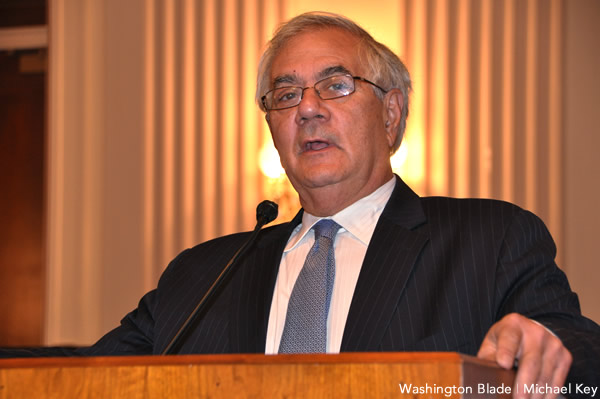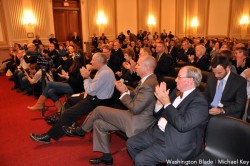Local
Kameny honored in memorial service on Capitol Hill
Members of Congress join LGBT community in remembering pioneer activist
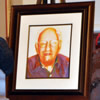
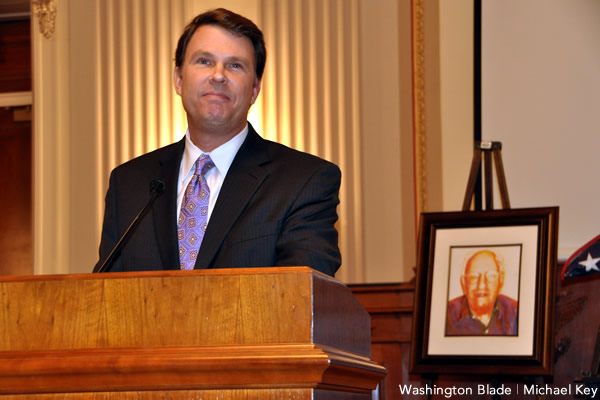
Director of the Office of Personnel Management, John Berry, addresses the attendees at the memorial service for Frank Kameny. (Washington Blade photo by Michael Key)
In a memorial service on Capitol Hill Tuesday night, three members of Congress, an Obama administration official, and a Yale Law School professor described the late gay rights leader Frank Kameny as a major figure in the U.S. civil rights movement who changed the course of history for LGBT Americans and the nation.
More than 200 people turned out for the service, which was held in the historic caucus room at the Cannon House Office Building across the street from the U.S. Capitol.
“His life cleared the path that I and countless others followed into public service,” said John Berry, the director of the U.S. Office of Personnel Management, who in 2009 became the Obama administration’s highest-level gay appointment.
“His unrelenting and unceasing fight for gay rights enabled other Americans to step out of the closet and into the full light of equality,” Berry told the gathering. “But most importantly, his long battle and eventual triumphs show the miracles that one person wrought upon the world.”
Berry’s sentiment was echoed by gay U.S. Reps. Barney Frank (D-Mass.) and Tammy Baldwin (D-Wisc.), Congressional Delegate Eleanor Holmes Norton (D-D.C.), and Yale Law School Professor William Eskridge Jr. Each told of how Kameny’s 50-year tenure as the nation’s preeminent gay rights strategist and advocate changed the course of the nation’s history and improved the lives of LGBT people and other Americans.
Gay rights advocate and Kameny friend Charles Francis said he and others who organized the memorial service chose to hold it on Nov. 15 to commemorate the 50th anniversary of Kameny’s co-founding of the Mattachine Society of Washington, D.C. Gay historians consider Mattachine of Washington to be D.C’s and the nation’s first homosexual civil rights organization.
Francis noted that Kameny and fellow activist Jack Nichols started the organization in 1961 not long after the Cannon Caucus Room, where Kameny’s memorial service was being held, was the site of the House Un-American Activities Committee’s widely publicized hearings in which communists and homosexuals were said to be a threat to the nation.
Eskridge praised Kameny’s role as a legal strategist and noted that Kameny waged one of the first effective efforts to repeal state sodomy laws, which classified gay sex as a crime. Eskridge and Norton, who called Kameny a civil rights champion, each compared the gay rights leader to American civil rights heroes in the black civil rights movement such as Rosa Parks and Thurgood Marshall.
Norton said that Kameny’s decision to become the first known gay person to fight his dismissal on grounds of homosexuality from his federal government job as an astronomer in 1957 was similar to Rosa Parks’ refusal to sit in the back of the bus as an act of defiance of the South’s segregation laws.
“He wore that dismissal as a badge of honor,” Norton said. “It is Frank’s lonely act of defiance that sets him apart” at a time when it was unthinkable for gays to stand up for their rights, she said.
Eskridge said Kameny’s work to advance legal rights for LGBT people in the early years of his activism in the 1960s was especially remarkable because he wasn’t a lawyer.
He said that in 1961 Kameny became the first in the U.S. civil rights movement to argue that sexual orientation should be treated the same as race in connection with laws and policies that ban discrimination.
“Those were remarkably good arguments,” said Eskridge. “Today they can get you tenure at a university. But back then they could land you in jail.”
Rep. Frank said Frank Kameny was an inspiration and role model for him at a time when he grappled with how his own status as a gay man would impact his plans to enter the realm of politics and run for public office in Massachusetts.
Frank said one of Kameny’s many accomplishments in the gay rights movement was his self-confidence and aggressive and assertive demeanor in informing the world that his cause was just and right.
“He was certainly the opposite of the stereotype of a gay person as a shrinking violet,” Frank said.
Baldwin said she, too, considered Kameny a role model in her own coming out as a lesbian interested in becoming involved in public affairs and politics.
“My own introduction to Frank came when I was in college,” she said. “I was just coming out. I sought everything I could find to read about our LGBT leaders… And what I learned about Frank Kameny, the Mattachine Society and so many other pioneers made me incredibly proud,” she said.
Berry, who delivered the main eulogy for Kameny at the memorial service, said he had the honor as head of the U.S. Office of Personnel Management to extend to Kameny a formal apology on behalf of the government for Kameny’s dismissal from government service in 1957.
“The apology closed an important cycle in his life’s work,” said Berry, who noted that it came more than 50 years after Kameny has been credited with initiating and living to see a long list of changes that have improved the lives of LGBT people.
An end to a government ban on granting security clearances to gays, the end of the ban on gays from serving in the military, the elimination of anti-gay sodomy laws, and the removal of the psychiatric profession’s classification of homosexuality as a mental disorder are all actions that Kameny played a key role in bringing about, Berry said.
“We have lost one of the great champions of truth. His life was long and full, his victories many and great. He has left his mark upon the world, and its stewardship falls to us now,” Berry told the gathering.
“The end of Frank’s avenue must not be the end of ours. We must continue on the journey forward. It is up to us to carry on the battles yet un-won, to write history and guard the future and to morn this great soul.”
Among those attending the Kameny memorial service were gay U.S. Reps. Jared Polis (D-Colo.) and David Cicilline (D-R.I.), who, along with Norton, Frank, and Baldwin, served as official congressional hosts for the event. Also attending were Gautam Raghavan, associate director of public engagement at the White House, who serves as White House liaison to the LGBT community; White House press spokesperson Shin Inouye; and D.C. Council members David Catania, Jim Graham, and Mary Cheh.
Virginia
Norfolk transgender resource center vandalized
Anti-trans graffiti spraypainted onto Southeastern Transgender Resource Center’s windows
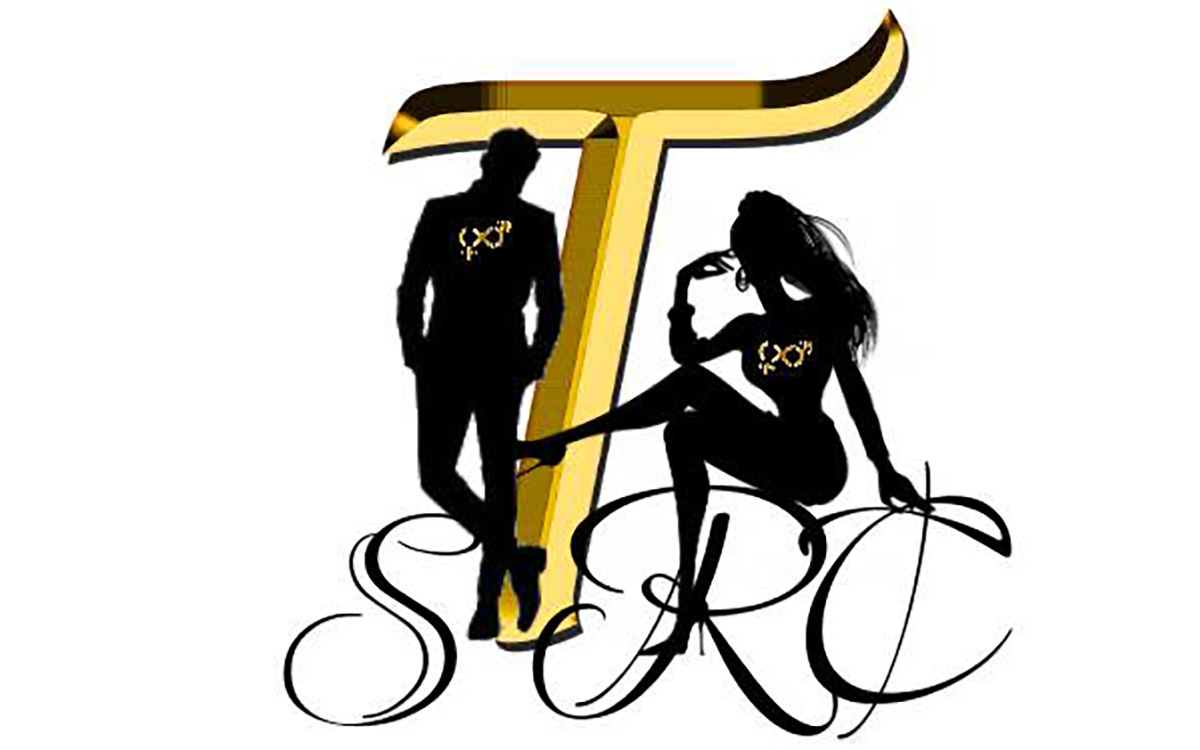
The Norfolk Police Department is investigating the vandalism of a transgender resource center’s building.
Tarena Williams, founder of the Southeastern Transgender Resource Center, told WAVY that someone spraypainted anti-trans graffiti on the windows of her organization’s offices on Sunday or Monday morning. Williams told the Hampton Roads television station that seeing the messages was like “walking into hell.”
“I opened up STRC, even the Lamina House,” she told WAVY. “I opened up that to get away from those types of words. This is a place you can come to get away from that, but to see that sprayed over the window. It’s kind of like you are walking into hell. … To be honest, I was like in shock.”
Authorities are investigating the vandalism.
West Virginia
Appeals court strikes down W.Va. transgender athlete ban
Ruling finds law violates students’ constitutional rights, Title IX

BY LORI KERSEY | The 4th U.S. Circuit Court of Appeals has struck down West Virginia’s ban on transgender athletes, finding the law violates trans students’ rights under the Equal Protection Clause of the constitution and Title IX, a federal civil rights law prohibiting discrimination based on sex in education programs.
The case, B.P.J. vs. the West Virginia Board of Education, was filed in May 2021 on behalf of Becky Pepper-Jackson, a 13-year-old trans middle school student and track athlete who would be barred from participating if the ban is upheld. Pepper-Jackson is represented by the American Civil Liberties Union, the American Civil Liberties Union of West Virginia and Lambda Legal.
In April 2021, West Virginia Gov. Jim Justice signed into law a bill prohibiting trans women and girls in the state from participating in sports that align with their gender identity. The U.S. Court of Appeals in February 2023 blocked the state from removing Pepper-Jackson from her school’s track and field team as legal advocates appealed a lower court’s ruling upholding the ban.
In Tuesday’s ruling, Judge Toby Heytens wrote that offering Pepper-Jackson the “choice” between not participating in sports and participating only on boys teams is not a real choice.
“The defendants cannot expect that B.P.J. will countermand her social transition, her medical treatment, and all the work she has done with her schools, teachers and coaches for nearly half her life by introducing herself to teammates, coaches and even opponents as a boy,” the judge wrote.
“By participating on boys teams, B.P.J. would be sharing the field with boys who are larger, stronger, and faster than her because of the elevated levels of circulating testosterone she lacks,” he wrote. “The Act thus exposes B.P.J. to the very harms Title IX is meant to prevent by effectively ‘exclud[ing]’ her from ‘participation in’ all non-coed sports entirely.”
In a statement Tuesday, Joshua Block, senior staff attorney for the ACLU’s LGBTQ and HIV Project, called the court’s ruling “a tremendous victory for our client, transgender West Virginians and the freedom of all youth to play as who they are.”
“It also continues a string of federal courts ruling against bans on the participation of transgender athletes and in favor of their equal participation as the gender they know themselves to be,” Block wrote. “This case is fundamentally about the equality of transgender youth in our schools and our communities and we’re thankful the 4th Circuit agreed.”
“We hope today’s ruling sends a message of hope to the trans youth of West Virginia,” Aubrey Sparks, legal director of the ACLU of West Virginia, said in the statement. “And a message of warning to politicians who continue to dehumanize this vulnerable population.”
West Virginia is one of 21 states that have banned trans student-athletes over the last three years, according to the ACLU.
In a statement Tuesday, West Virginia Attorney General Patrick Morrisey vowed to defend the ban and said he is “deeply disappointed” in the decision.
“The Save Women’s Sports Act is ‘constitutionally permissible’ and the law complies with Title IX,” Morrisey said. “I will keep fighting to safeguard Title IX. We must keep working to protect women’s sports so that women’s safety is secured and girls have a truly fair playing field. We know the law is correct and will use every available tool to defend it.”
******************************************************************************************

Lori Kersey is a reporter with a decade of experience reporting in West Virginia. She covers state government for West Virginia Watch.
******************************************************************************************
The preceding article was previously published by the West Virginia Watch and is republished with permission.
Nonprofit, nonpartisan, independent journalism not hidden behind a paywall. Mountaineers are always free, and so is West Virginia Watch.
West Virginia Watch is part of States Newsroom, the nation’s largest state-focused nonprofit news organization.
District of Columbia
Reenactment of first gay rights picket at White House set for April 17
Event marks 59th anniversary of historic push for gay rights in nation’s capital
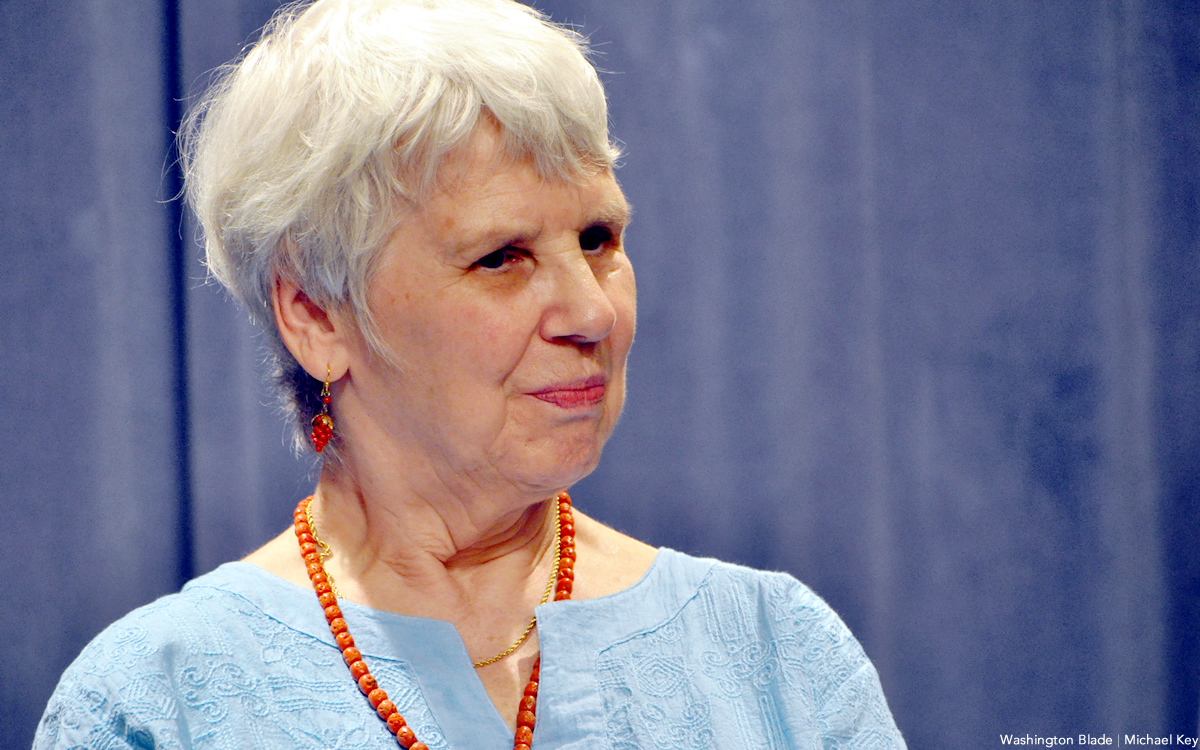
D.C.’s Rainbow History Project announced it will hold a reenactment on Wednesday, April 17, of the historic first protest for gay rights in the form of a picket line in front of the White House that took place on that same day in 1965.
In a statement released last week, Rainbow History Project says the reenactment will mark the 59th anniversary of an event that is credited with bringing attention for the first time to the federal government’s longstanding discrimination against a minority group referred to then as homosexuals or gays and lesbians.
The statement notes that the 1965 event was organized by the Mattachine Society of Washington, D.C., the first politically active LGBT organization in the nation’s capital founded by local gay rights pioneer Frank Kameny.
“The picket took place on the White House sidewalk, Lafayette Park, 1600 Pennsylvania Ave., on April 17, 1965,” the statement says. “For exactly one hour, from 4:20 p.m. to 5:20 p.m., members of the Mattachine Society of Washington walked in a circle, non-stop, in silence, carrying posters of their demands,” the statement continues.
“The White House picket is the origin story for public demonstrations for gay rights in the U.S., and the origin story for Pride Marches and the annual LGBTQ Pride celebrations which occur across the globe,” according to the statement.
It says those picketing in the April 1965 event, which included Kameny and longtime local D.C.-area lesbian activist Lilli Vincenz, both of whom held doctorate degrees, called on the government to adopt the Mattachine Society of Washington’s four major demands: an end to the exclusion of homosexuals from federal government employment; an end to the ban on gays and lesbians from serving in the U.S. military; an end to the “blanket denial” of security clearances for gay people; and an end to the “government refusal to meet with the LGBTQ community.’
Among those who chose not to respond to the request for a meeting was President Lyndon B. Johnson, who occupied the White House at the time of the 1965 picketing.
Vincent Slatt, the Rainbow History Project’s director of archiving and one of the lead organizers of the April 17 reenactment event, said the event is aimed, among other things, at drawing attention to how far the LGBTQ community has come since 1965. He said the event is not in any way a protest of the administration of President Joe Biden and Vice President Kamala Harris, who Slatt called staunch supporters of the LGBTQ community.
“We are just reenacting this historical event and pointing out how far we’ve come,” Slatt told the Washington Blade. “If you think about what it means in 1965 when these people were protesting and LBJ would not even respond to them. And now, we are at a place where Vice President Harris speaks on a stage at Capital Pride.”
The Rainbow History Project statement notes that the reenactment event will also be held in honor of Kameny, who died in 2011, and Vincenz, who passed away in 2023, both of whom participated in a similar reenactment event in 2008.
Among those who will be participating in this week’s reenactment on April 17 will be longtime local LGBTQ rights activist Paul Kuntzler, who is the only known surviving person who was among the White House picketers at the April 1965 event. Kuntzler will be carrying a replica of his own picket sign he held at the 1965 event, the statement says.
It says Rainbow History Project volunteers will also carry replicas of the original protest signs and hand out literature explaining the picket to passersby and tourists.
Similar to the 1965 event, the reenactment picketing at the White House will begin on April 17 at about 4:15 p.m., according to Slatt of the Rainbow History Project.

